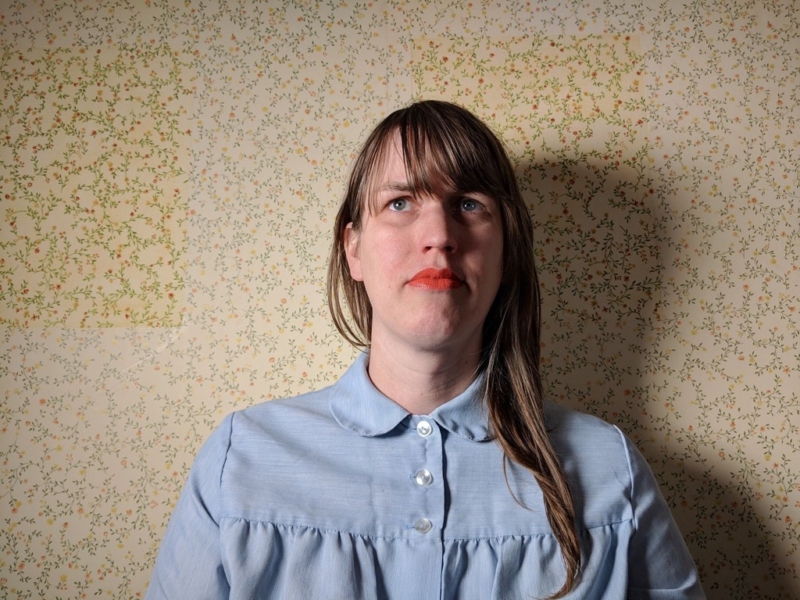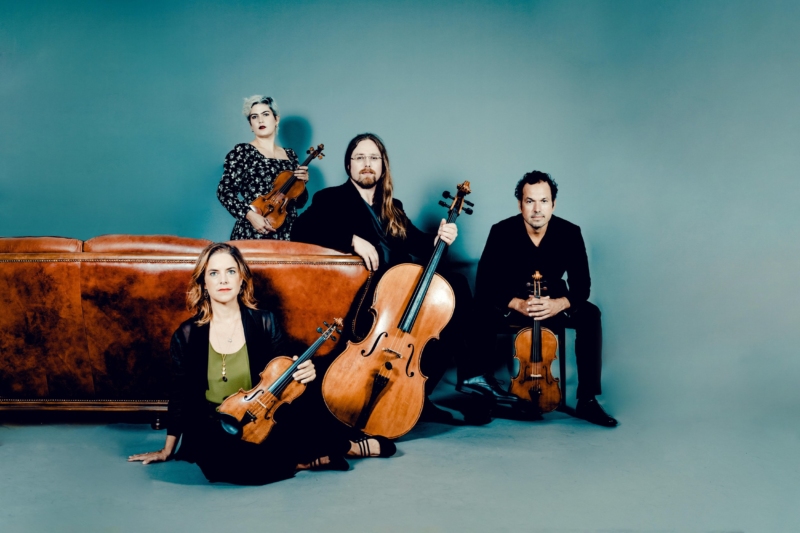READER: BORROWED LIGHT
10.08.2023

Sarah Hennies: Borrowed Light (2023, WP)
Mivos Quartet

“Borrowed Light” – Sarah Hennies’s String Quartet, written for the Mivos Quartet – is as imaginatively evocative as Motor Tapes, the American composer’s new work in the program of Dedalus Ensemble on 8 August 2023. If Motor Tapes refers to neural pathways and endless loops, Borrowed Light derives from a technique developed by American Shakers to install windows in interior walls of buildings to let in light from adjacent rooms with exterior windows. The Shakers, a religious community now almost completely forgotten and often mistaken for the Amish People, also became known primarily for their craftsmanship – “Shaker-made” was considered a seal of quality per se. The Mivos Quartet, which will premiere Borrowed Light in Darmstadt, took part in a young ensemble program at the Summer Course 2012 and has since gone on to a remarkable international career. Together with the young Polish ensemble Spółdzielnia Muzyczna, the Mivos Quartet is Ensemble-in-Residence at the Summer Course 2023.
With the friendly support of the Ernst von Siemens Music Foundation and the Pro Musica Viva – Maria Strecker-Daelen-Stiftung (PMV)
Victor Lowrie TafoyaWe will be premiering a new work by Sarah Hennies, called Borrowed Light, which is an evening length string quartet. It‘s really exciting because we’ve been waiting to work with her for some time. We don‘t know her personally, but her music tends to be longer-form works program. It can be hard to find support for that kind of piece. For instance, it’s hard to write a grant proposal. Any kind of application wants a one, two or three-minute highlight of a piece. But if it's a piece that evolves over 50 minutes — how do you do that? So, it took a while to find the right time and financial support to get this work together.

Olivia de Prato (1st violin):
We started in 2008 at the Manhattan School of Music. Victor Lowrie Tafoya and I are the founding members. So, we‘ve been together since the beginning. We had a few personal changes for the other two players, but we all started studying together at the Manhattan School of Music. A program for contemporary performance practice had just started in 2007, and we were basically the string players because it was the first year and they only had 13 students in total at that program. After finishing the master’s degree, we decided to keep playing together as a quartet. Crazy idea. But, you know, we love playing together, we love playing contemporary music and doing a lot of collaborations. For us, one of the main missions is also not just performing new works and commissioning, but also doing a lot of collaborative works with artists from different backgrounds and different aesthetics. So, we work with a lot of people, a lot of composers and artists, musicians that come more from the improvised worlds, maybe more from the so-called jazz world, although, you know, we‘re all kind of together in this new music world. We like to improvise too; there are not many string quartets that like to do improvisation as well. I don’t know if Victor wants to add to that.
Victor Lowrie Tafoya (viola):
That‘s the basic story. We are a bit of a smaller operation because there are just the four of us, usually. Sometimes there’s more of it when there‘s a bigger collaboration. We’re based in the US, as non-profit corporation, which just makes things easier for fundraising. It‘s just the typical way that American-based music ensembles function. So, that’s how we function. We also have a board of directors that does help us and advises us on taxes and fun things like that. But we do a lot of the administrative work ourselves as well, and we divide that up amongst the four of us because it all has to get done and generally works quite well. I just want to point out that we made a decision over the course of time: our work really has moved in the direction of really collaborating directly with composers as much as possible. So, really every new piece, every new project is a collaboration between us and the person around the music and maybe even might be involved in the writing or the workshopping of new pieces. That keeps us focused on newer things.
[…]
There‘s kind of an institution or tradition, especially in the arts. I mean, there’s something valuable in that, and it usually came about for a reason. I mean, the dominant Summer Courses have an amazing history of pieces, composers and lectures. And it‘s all interesting, beautiful and thought-provoking. But it’s also always in constant change, even if it‘s a rock, as you say. I think, it has to change with the times and it’s changing as the music world in general just becomes more inclusive and expansive. That‘s a good and natural thing. And it’s very healthy. It‘s more accurate to it to what is actually happening in the world and what’s important in music. Both past and present don’t have to be opposed to each other.
Olivia de Prato:
People come from all over the world to present pieces, maybe from their home country or from friends or people that they have collaborated with. It‘s like saying: ’here‘s what we like. That’s what‘s happening right now. Take a listen to this, take a listen to that.’ And there is so much variety now, which is great. It’s a nice way to interact and present music.
Read the whole interview between Mivos Quartet and Spódzielnia Muzyczna (PDF, 5.1 MB)
